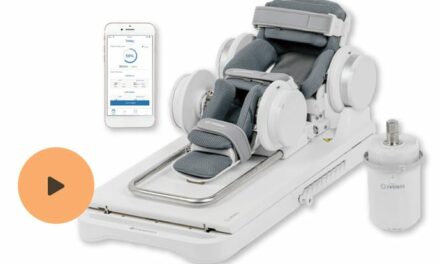Wandercraft, the developer of a self-balancing robotic exoskeleton that enables people with limited mobility to stand up and walk again, announced that it has received FDA clearance for Atalante X for rehabilitation in individuals with spinal cord injuries (SCI) at levels T5 to L5.
The company says the clearance is supported by safety and effectiveness data of the Atalante X exoskeleton in patients with SCI at levels T5-L5 and has been evaluated in more than 500 patients, including clinical trials and real-world evidence.
Further Reading: Wandercraft Brings Atalante Exoskeleton to the US
The FDA’s previous clearance of Atalante X for cerebrovascular accident (CVA) in December 2022, combined with the recent unveiling of their Personal Exoskeleton designed to one day replace the wheelchair, further validates the potential of Wandercraft’s technology and their momentum as a growing force in the global medical device market.
“Today’s FDA clearance for individuals with spinal cord injuries speaks volumes about the amazing possibilities for Atalante X,” says Matthieu Masselin, CEO of Wandercraft. “In addition to the successful unveiling of our Personal Exoskeleton in December, Wandercraft has achieved several key milestones over the last year, and we have no plans of slowing down.”
Further Reading: Company Unveils Personal Walking Exoskeleton
Atalante X is the only FDA cleared exoskeleton with a powered ankle mechanism that can perform complex ankle movements that mimic a natural human gait, according to Wandercraft. The unique ankle motion, combined with intelligent self-balancing technology, means that patients can experience the benefits of once-again walking in a rehabilitation setting.
Wandercraft’s approach means that therapists can now help even more patients:
- stand up and walk in the exoskeleton, on their very first session
- take steps in different directions (e.g., forwards, backwards, sideways)
- practice standing in an upright and weight-bearing positions
- more easily transfer in and out of the device
“The FDA clearance of Atalante X for spinal cord injury is welcome news for the future of robotics in rehabilitation research,” says Gail Forrest, PhD, director of the Tim and Caroline Reynolds Center for Spinal Stimulation and associate director of the Center for Mobility and Rehabilitation Engineering Research at Kessler Foundation. “At Kessler, we are committed to researching promising advances in robotics technology that offer innovative approaches to improving functional recovery. This new indication greatly expands our opportunities to study the optimal use of this innovative exoskeleton in this population with challenging mobility deficits. The insights we are gaining from our investigation of Atalante X are not only advancing our research in spinal cord injury but also enriching our understanding of neuro/functional recovery across other populations as well.”
The team behind Wandercraft believes everyone should have the opportunity to stand up and walk in their everyday lives. Wandercraft looks forward to continued testing, clinical trials, and working with regulators to bring the benefits of robotics to the rehabilitation and personal use market.
Masselin adds, “Today represents a decade of hard work and I am so proud of the entire Wandercraft team. What was once a dream of helping people walk again is becoming a reality as we relentlessly pursue our mission of supporting people with walking impairments through every step of their mobility journey.”
Featured image: Wandercraft





